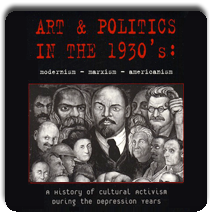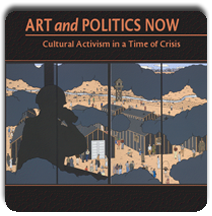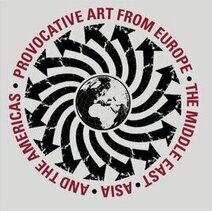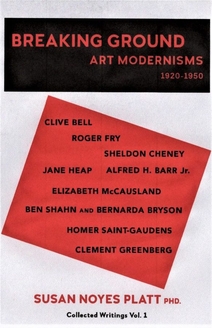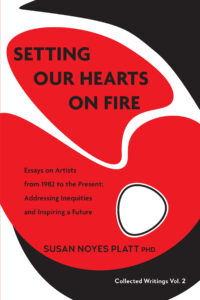The Pinter Festival at ACT
This is just a quick acknowledgement of a brilliant playwright and a thank you to the ACT theater for staging a Pinter Festival this summer. Harold Pinter stylistically can be placed between Samuel Beckett and Tom Stoppard in the British Theater. He lived from 1930 – 2008 and received the Nobel Prize for Literature in 2006. I quoted from one of his anti war poems “God Bless America” (2003) at the beginning of my book Art and Politics Now. It was written at the beginning of the Iraq war.
“Here they go again
The Yanks in their armored parade
Chanting their ballads of joy
As they gallop across the big world
Praising America’s God
The gutters are clogged with the dead.”
His Nobel Prize lecture in 2005 was absolutely bald in its condemnation of the US policies since World War II. Pinter’s command of language is such that the speech “Art Truth and Politics” is riveting. He begins with some brief references to several of his plays; the theme of all of them is possibilities, ambiguities, and the “search for truth” which “can never stop,” as he said.
Indeed the four plays recently presented by ACT theater,
Old Times, The Dumb Waiter, Celebration and No Man’s Land, as well as the monlogue by Henry Woolf, who was Pinter’s closest friend throughout his life, all are populated by characters who are speaking what they think is truth, but truth that is memory, fantasy, hopes, dreams, and invention. The characters do not communicate with each other, they seem to talk beyond or through each other ( in the case of Woolf’s monologue he is actually talking to an empty chair). The famous Pinter pauses emphasizes the lack of communication. The silences in Pinter’s plays say as much as the words. ( I found myself craving pauses after seeing his plays.)
His plays are located in the living rooms, restaurants, and sometimes basements of the middle class. His characters are usually doing nothing but talk, there is no action, no plot, no story, except what the characters narrate as they basically sit in one place, with a few actions ( pouring coffee, pouring scotch) to punctuate the speeches. We can hear Shakespeare, Beckett, T.S. Eliot, the whole of English literature in these speeches. They are elegant, circuitous, and fantastically long. The other characters stand in suspended animation, with just slight changes in facial expressions, as the speaking character holds forth.
It is a completely unpromising format.
Pinter does not address anything political in his plays directly (unlike Stoppard). He prefers to lay out the tapestry of words that suggest the human soul at its most poignent and vulnerable. Since he deeply cared about language as a crucial human attribute, the forming of words, ideas, thoughts, was difficult and necessary; it follows then that, for him, the corruption of language by politicians is a manifestation of the death of humanity.
Pinter saw how language was being used to tell lies about Iraq, he spoke out against it. He saw how the language of the US presidents and government, words like democracy and freedom, have always been used to justify atrocities.He saw through all the language screens because he constructed so many of them himself. But his screens are full of humanity, love, and aspiration. The screens of politicians are manipulative, devious, and malignant.
In his Nobel prize speech Pinter speaks of the language of politics and its absence of truth.
” . . . the majority of politicians, on the evidence available to us, are interested not in truth, but in power and in the maintenance of that power. To maintain that power it is essential that people remain in ignorance, that they live in ignorance of the truth, even the truth of their own lives. What surrounds us therefore is a vast tapestry of lies upon which we feed.”
When we view his plays, we feel claustrophobic, we feel trapped in a small space, but we slowly realize that the only escape is through language, words that expand that space, that define the individuals, that reach backward in time and forward into the future. From those armchairs, we experience a sensation of the human spirit taking flight though imagination.
That is why we feel so trapped today, because the language of the public arena does not allow any escape, it is fantasy without any basis in humanity.
It is fabrication created in order to destroy, kill, and gain power. We live our lives, our ordinary lives, against a backdrop of massive delusional power that is undermining everything we care about, that is physically destroying our country, not in the same way that we are destroying other countries, but just as relentlessly. Why on earth do we have so many homeless, so many without jobs, without health care, so many without any way to go forward, such struggling schools, as we pour resources into war and weapons making.
Here’s to Pinter, one of the great writers and thinkers to bring together art and politics through his extraordinary command of the English language and all of its nuances. And it is the absence of nuance that he saw as the most revealing of the deadly goals of political discourse. For Pinter, lack of nuance means, lack of imagination, lack of thought, and in the end, lack of life.
This entry was posted on August 27, 2012 and is filed under Art and Activism, Art and Politics Now, Uncategorized.



